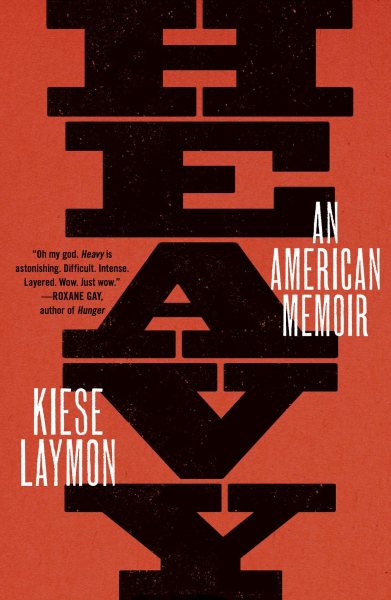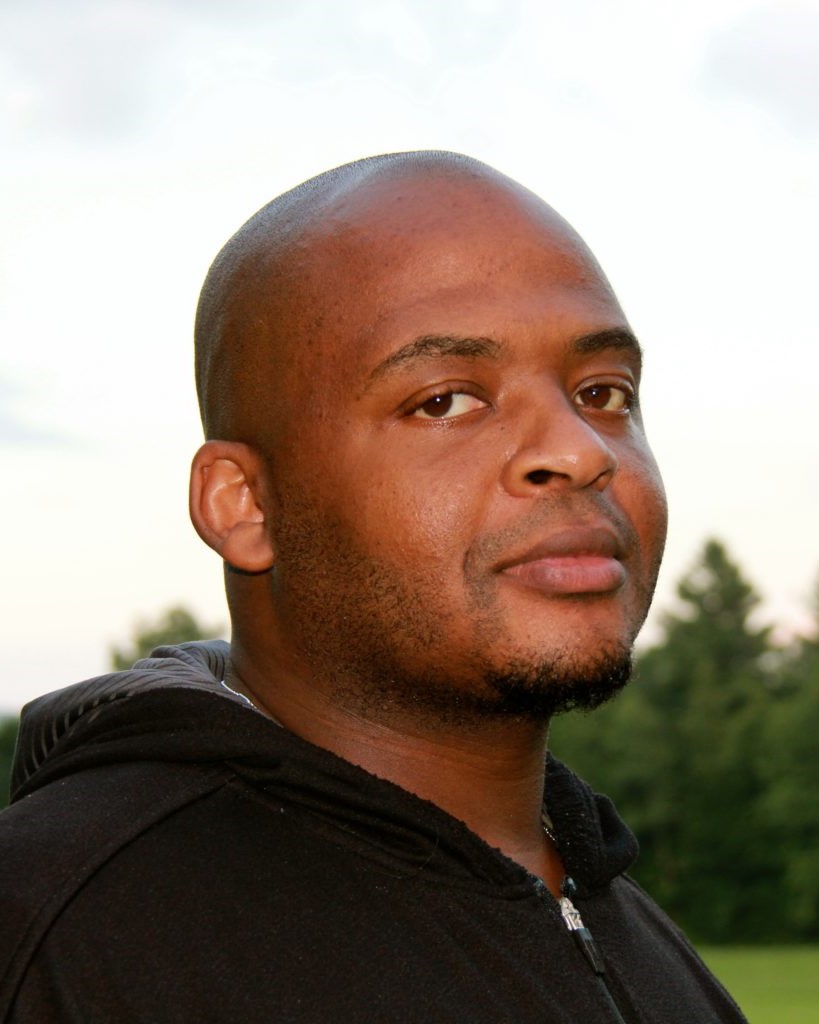Interview by Jana Hoops. Special to the Clarion-Ledger Sunday print edition (December 2)
Growing up in Jackson, Kiese Laymon learned early on that he would have to learn how to fight many battles, as he experienced the weight of emotional pain, violence, racism, addictions, confusion–and a lifetime struggle with the bathroom scales.
 His new book, Heavy: An American Memoir (Scribner) is, literally, a long letter written directly to his mother, as he works through the complexity of his disordered childhood and its continued effects on his life today. The result is a deeply personal, and open, cry for answers as to why theirs was such a difficult relationship even as she unfailingly reassured him of her love.
His new book, Heavy: An American Memoir (Scribner) is, literally, a long letter written directly to his mother, as he works through the complexity of his disordered childhood and its continued effects on his life today. The result is a deeply personal, and open, cry for answers as to why theirs was such a difficult relationship even as she unfailingly reassured him of her love.
A single mother who has little money but big expectations for her son, she was determined for her son, she was determined Laymon would get a good education and, in the process, develop a toughness she believed would prepare him for dealing with the curves she was certain white society would throw at him.
The book is a 2018 Kirkus Award Finalist and is shortlisted for the 2019 Andrew Carnegie Medal of Excellence in Nonfiction.

Kiese Laymon
Other books Laymon has authored include the novel Long Division and a collection of essays titled How to Slowly Kill Yourself and Others in America. His essays, stories, and reviews have appeared in the New York Times, the Los Angeles Times, Esquire, McSweeney’s, PEN Journal, Oxford American, Ebony, Travel and Leisure, the Best American series, Paris Review, and many other publications. Another novel, And So On, is due out in 2019.
Laymon is now the Distinguished Professor of Creative Writing and English at the University of Mississippi in Oxford. He previously served as an associate professor of English and Africana studies at Vassar College in New York.
Heavy: An American Memoir is a commanding title for a record of one’s life at your age. Describe how the title explains and describes your life, and why you wanted to share your personal story with the world.
The book is really about words and “heavy” is one of the most elastic words we have. It means so much. Sometimes it means intellectual depth. Sometimes it means a lot of weight.
You had a difficult childhood, growing up with a driven, abusive mother who tangled up love with frequent mistreatment–and yet, she was the one who introduced you to books and who demanded a very strict writing discipline from you. Tell me about how writing this book has been a way to sort through the confusion of those years and beyond.
The book was exactly a means of working through things I never worked through. To really remember, I needed to write to my mother since she was my first teacher and the first person to read the sentences I wrote as a child.
You write that, for generations, your family has kept secrets about abusiveness, addictions, issues with weight, and other struggles. Has your relationship with your mother improved over the years?
My mother and I are talking about things we avoided for decades. Every day is work, but we are up for it.
The entire book is written in a technique that directly addresses your mother personally, from start to finish. Why did you decide to frame the book using this unique writing style?
Again, I wanted to write a memoir that I’d never seen. I’d seen people address their children, but I’d never read an entire memoir written to one’s mother. I had to write this book to my mother if I was going to do the memoir justice.
Explain why you skipped your own high school graduation.
I wasn’t a fan of Gov. Kirk Fordice, and he was scheduled to be our graduation speaker. So, I told my friends I was skipping.
That was part of it. The other part was that I was really embarrassed for graduating close to the bottom of my class.
What is your message in this book to the white community, and is it only directed at Mississippians?
I think black Mississippians have spent lifetimes sending messages to the white community. I’m not sure I have anything more impactful to say to white folks than Faulkner, Welty, Wright, Hamer, Morrison, or Baldwin already said.
I wish they’d listen to the lessons writers and freedom fighters have been trying to send them for generations. I really wish they would listen.
You state in your book that if you ever had a child, you would want to raise him or her in Mississippi. After everything you’ve lived through here, why would you say that?
I came back to Mississippi, the culturally richest place in the world, and I needed to be closer to a lot of the people and spirits that ironically gave me a chance to leave.
Is there a new writing project in the works for you at this time, and, if so, can you share any information about it here?
I’m working on a new novel called And So On. I’m so happy to be back in Mississippi working with young writers who will become the future of American literature.
Kiese Laymon will be at Lemuria on Saturday, December 8, at 12:00 p.m. to sign copies of Heavy. Signed copies are available at our online store.


Comments are closed.